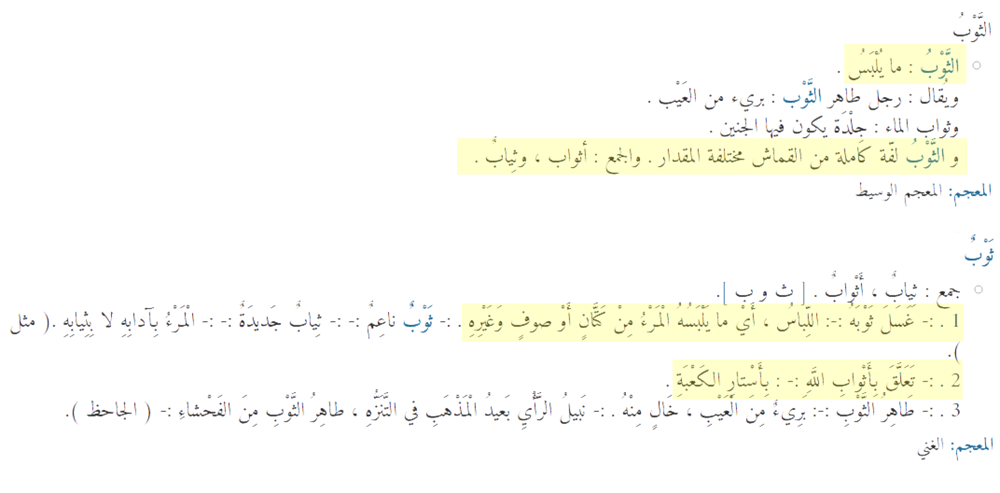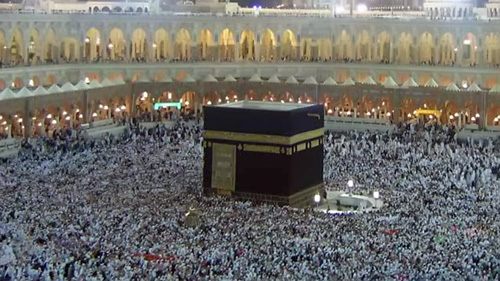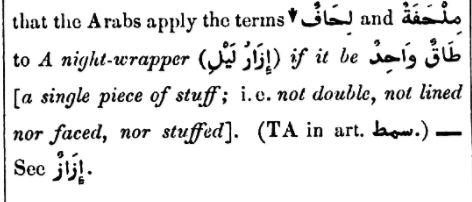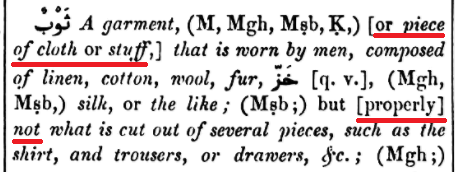This is Khan's Translation of Sahih Bukhari Vol 3 Book 51 Chapter 8 Hadith 2581
Narrated Urwa from Aisha: The wives of Allah's Messenger (ﷺ) were in two groups. One group consisted of Aisha, Hafsa, Safiyya and Sauda; and the other group consisted of Um Salama and the other wives of Allah's Messenger (ﷺ). The Muslims knew that Allah's Messenger (ﷺ) loved Aisha, so if any of them had a gift and wished to give to Allah's Messenger (ﷺ), he would delay it, till Allah's Messenger (ﷺ) had come to Aisha's home and then he would send his gift to Allah's Messenger (ﷺ) in her home. The group of Um Salama discussed the matter together and decided that Um Salama should request Allah's Messenger (ﷺ) to tell the people to send their gifts to him in whatever wife's house he was. Um Salama told Allah's Messenger (ﷺ) of what they had said, but he did not reply. Then they (those wives) asked Um Salama about it. She said, "He did not say anything to me." They asked her to talk to him again. She talked to him again when she met him on her day, but he gave no reply. When they asked her, she replied that he had given no reply. They said to her, "Talk to him till he gives you a reply." When it was her turn, she talked to him again. He then said to her, "Do not hurt me regarding Aisha, as the Divine Inspirations do not come to me on any of the beds except that of Aisha." On that Um Salama said, "I repent to Allah for hurting you." Then the group of Um Salama called Fatima, the daughter of Allah's Messenger (ﷺ) and sent her to Allah's Messenger (ﷺ) to say to him, "Your wives request to treat them and the daughter of Abu Bakr on equal terms." Then Fatima conveyed the message to him. The Prophet (ﷺ) said, "O my daughter! Don't you love whom I love?" She replied in the affirmative and returned and told them of the situation. They requested her to go to him again but she refused. They then sent Zainab bint Jahsh who went to him and used harsh words saying, "Your wives request you to treat them and the daughter of Ibn Abu Quhafa on equal terms." On that she raised her voice and abused `Aisha to her face so much so that Allah's Messenger (ﷺ) looked at Aisha to see whether she would retort. Aisha started replying to Zainab till she silenced her. The Prophet (ﷺ) then looked at Aisha and said, "She is really the daughter of Abu Bakr."
حَدَّثَنَا إِسْمَاعِيلُ، قَالَ حَدَّثَنِي أَخِي، عَنْ سُلَيْمَانَ، عَنْ هِشَامِ بْنِ عُرْوَةَ، عَنْ أَبِيهِ، عَنْ عَائِشَةَ ـ رضى الله عنها ـ أَنَّ نِسَاءَ، رَسُولِ اللَّهِ صلى الله عليه وسلم كُنَّ حِزْبَيْنِ فَحِزْبٌ فِيهِ عَائِشَةُ وَحَفْصَةُ وَصَفِيَّةُ وَسَوْدَةُ، وَالْحِزْبُ الآخَرُ أُمُّ سَلَمَةَ وَسَائِرُ نِسَاءِ رَسُولِ اللَّهِ صلى الله عليه وسلم، وَكَانَ الْمُسْلِمُونَ قَدْ عَلِمُوا حُبَّ رَسُولِ اللَّهِ صلى الله عليه وسلم عَائِشَةَ، فَإِذَا كَانَتْ عِنْدَ أَحَدِهِمْ هَدِيَّةٌ يُرِيدُ أَنْ يُهْدِيَهَا إِلَى رَسُولِ اللَّهِ صلى الله عليه وسلم أَخَّرَهَا، حَتَّى إِذَا كَانَ رَسُولُ اللَّهِ صلى الله عليه وسلم فِي بَيْتِ عَائِشَةَ بَعَثَ صَاحِبُ الْهَدِيَّةِ إِلَى رَسُولِ اللَّهِ صلى الله عليه وسلم فِي بَيْتِ عَائِشَةَ، فَكَلَّمَ حِزْبُ أُمِّ سَلَمَةَ، فَقُلْنَ لَهَا كَلِّمِي رَسُولَ اللَّهِ صلى الله عليه وسلم يُكَلِّمُ النَّاسَ، فَيَقُولُ مَنْ أَرَادَ أَنْ يُهْدِيَ إِلَى رَسُولِ اللَّهِ صلى الله عليه وسلم هَدِيَّةً فَلْيُهْدِهِ إِلَيْهِ حَيْثُ كَانَ مِنْ بُيُوتِ نِسَائِهِ، فَكَلَّمَتْهُ أُمُّ سَلَمَةَ بِمَا قُلْنَ، فَلَمْ يَقُلْ لَهَا شَيْئًا، فَسَأَلْنَهَا. فَقَالَتْ مَا قَالَ لِي شَيْئًا. فَقُلْنَ لَهَا فَكَلِّمِيهِ. قَالَتْ فَكَلَّمَتْهُ حِينَ دَارَ إِلَيْهَا أَيْضًا، فَلَمْ يَقُلْ لَهَا شَيْئًا، فَسَأَلْنَهَا. فَقَالَتْ مَا قَالَ لِي شَيْئًا. فَقُلْنَ لَهَا كَلِّمِيهِ حَتَّى يُكَلِّمَكِ. فَدَارَ إِلَيْهَا فَكَلَّمَتْهُ. فَقَالَ لَهَا " لاَ تُؤْذِينِي فِي عَائِشَةَ، فَإِنَّ الْوَحْىَ لَمْ يَأْتِنِي، وَأَنَا فِي ثَوْبِ امْرَأَةٍ إِلاَّ عَائِشَةَ ". قَالَتْ فَقَالَتْ أَتُوبُ إِلَى اللَّهِ مِنْ أَذَاكَ يَا رَسُولَ اللَّهِ. ثُمَّ إِنَّهُنَّ دَعَوْنَ فَاطِمَةَ بِنْتَ رَسُولِ اللَّهِ صلى الله عليه وسلم فَأَرْسَلْنَ إِلَى رَسُولِ اللَّهِ صلى الله عليه وسلم تَقُولُ إِنَّ نِسَاءَكَ يَنْشُدْنَكَ اللَّهَ الْعَدْلَ فِي بِنْتِ أَبِي بَكْرٍ. فَكَلَّمَتْهُ. فَقَالَ " يَا بُنَيَّةُ، أَلاَ تُحِبِّينَ مَا أُحِبُّ ". قَالَتْ بَلَى. فَرَجَعَتْ إِلَيْهِنَّ، فَأَخْبَرَتْهُنَّ. فَقُلْنَ ارْجِعِي إِلَيْهِ. فَأَبَتْ أَنْ تَرْجِعَ، فَأَرْسَلْنَ زَيْنَبَ بِنْتَ جَحْشٍ، فَأَتَتْهُ فَأَغْلَظَتْ، وَقَالَتْ إِنَّ نِسَاءَكَ يَنْشُدْنَكَ اللَّهَ الْعَدْلَ فِي بِنْتِ ابْنِ أَبِي قُحَافَةَ. فَرَفَعَتْ صَوْتَهَا، حَتَّى تَنَاوَلَتْ عَائِشَةَ. وَهْىَ قَاعِدَةٌ، فَسَبَّتْهَا حَتَّى إِنَّ رَسُولَ اللَّهِ صلى الله عليه وسلم لَيَنْظُرُ إِلَى عَائِشَةَ هَلْ تَكَلَّمُ قَالَ فَتَكَلَّمَتْ عَائِشَةُ تَرُدُّ عَلَى زَيْنَبَ، حَتَّى أَسْكَتَتْهَا. قَالَتْ فَنَظَرَ النَّبِيُّ صلى الله عليه وسلم إِلَى عَائِشَةَ، وَقَالَ " إِنَّهَا بِنْتُ أَبِي بَكْرٍ ". قَالَ الْبُخَارِيُّ الْكَلاَمُ الأَخِيرُ قِصَّةُ فَاطِمَةَ يُذْكَرُ عَنْ هِشَامِ بْنِ عُرْوَةَ عَنْ رَجُلٍ عَنِ الزُّهْرِيِّ عَنْ مُحَمَّدِ بْنِ عَبْدِ الرَّحْمَنِ. وَقَالَ أَبُو مَرْوَانَ عَنْ هِشَامٍ عَنْ عُرْوَةَ كَانَ النَّاسُ يَتَحَرَّوْنَ بِهَدَايَاهُمْ يَوْمَ عَائِشَةَ. وَعَنْ هِشَامٍ عَنْ رَجُلٍ مِنْ قُرَيْشٍ، وَرَجُلٍ مِنَ الْمَوَالِي، عَنِ الزُّهْرِيِّ عَنْ مُحَمَّدِ بْنِ عَبْدِ الرَّحْمَنِ بْنِ الْحَارِثِ بْنِ هِشَامٍ قَالَتْ عَائِشَةُ كُنْتُ عِنْدَ النَّبِيِّ صلى الله عليه وسلم فَاسْتَأْذَنَتْ فَاطِمَةُ.
I found this strange, considering the word appears 8 times in the Quran and in his translation, he never translates it as "bed".
- No doubt! They did fold up their breasts, that they may hide from Him. Surely, even when they cover themselves with their garments, He knows what they conceal and what they reveal. Verily, He is the All-Knower of the (innermost secrets) of the breasts 11:5
- These! For them will be 'Adn (Eden) Paradise (everlasting Gardens); wherein rivers flow underneath them, therein they will be adorned with bracelets of gold, and they will wear green garments of fine and thick silk. They will recline therein on raised thrones. How good is the reward, and what an excellent Murtafaqa (dwelling, resting place, etc.)! 18:31
- These two opponents (believers and disbelievers) dispute with each other about their Lord; then as for those who disbelieve, garments of fire will be cut out for them, boiling water will be poured down over their heads. 22:19
- O you who believe! Let your legal slaves and slave-girls, and those among you who have not come to the age of puberty ask your permission (before they come to your presence) on three occasions; before Fajr (morning) prayer, and while you put off your clothes for the noonday (rest), and after the 'Isha' (late-night) prayer. (These) three times are of privacy for you, other than these times there is no sin on you or on them to move about, attending (helping) you each other. Thus Allah makes clear the Ayat (the Verses of this Qur'an, showing proofs for the legal aspects of permission for visits, etc.) to you. And Allah is All-Knowing, All-Wise. 24:58
- And as for women past child-bearing who do not expect wed-lock, it is no sin on them if they discard their (outer) clothing in such a way as not to show their adornment. But to refrain (i.e. not to discard their outer clothing) is better for them. And Allah is All-Hearer, All-Knower. 24:60
- "And verily! Every time I called unto them that You might forgive them, they thrust their fingers into their ears, covered themselves up with their garments, and persisted (in their refusal), and magnified themselves in pride. 71:7
- And your garments purify! 74:4
- Their garments will be of fine green silk, and gold embroidery. They will be adorned with bracelets of silver, and their Lord will give them a pure drink. 76:21
Is it possible to translate "ثَوْبِ" as "beds"?







